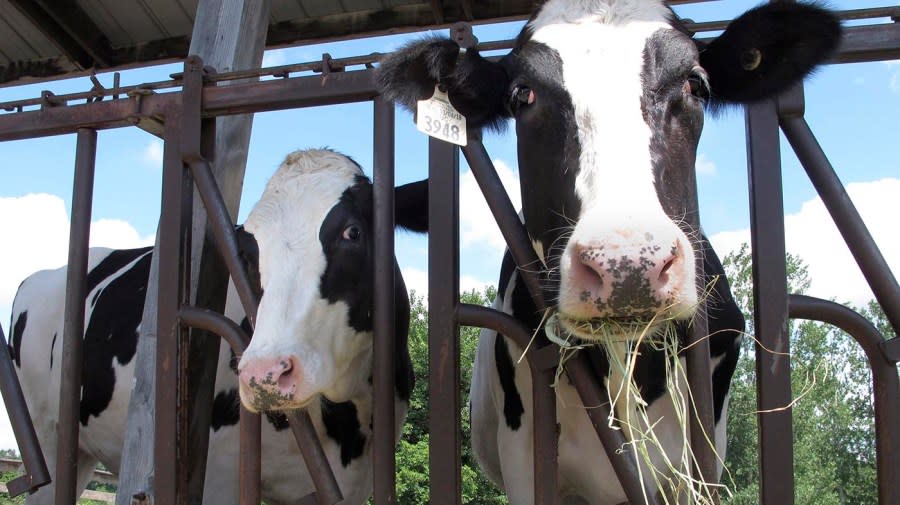Agriculture Department testing beef for bird flu virus

The Department of Agriculture (USDA) is testing beef for a bird flu virus following the infections of cattle in multiple states, though it says it remains confident the country’s meat supply is safe.
The agency is doing three studies related to bird flu in dairy cattle, one in which they sample ground beef at retail locations, another in which they sample the muscle beef from culled cows and a third in which they utilize a virus surrogate in ground beef and cook it at varying temperatures.
The USDA said it has “a rigorous meat inspection process” and “multiple safeguards in place to protect consumers” in a statement on Monday.
“We recommend consumers properly handle raw meats and cook to a safe internal temperature,” the agency added.
A man from Texas recently contracted bird flu as it spreads amongst cows in multiple states, according to the Centers for Disease Control (CDC), though his symptoms were not severe.
The recent infections of the cows have occurred in states including Texas, Kansas, Idaho, New Mexico and Michigan, and are the first time the virus has been found in cattle in the U.S, per the agency.
“This infection does not change the H5N1 bird flu human health risk assessment for the U.S. general public, which CDC considers to be low,” the CDC said in a statement earlier this month.
The agency also said that “people with close or prolonged, unprotected exposures to infected birds or other animals (including livestock), or to environments contaminated by infected birds or other animals, are at greater risk of infection.”
In an emailed statement, Sarah Little, a spokesperson for the Meat Institute, a trade association for the meat industry, said the “USDA’s additional testing is appropriate to ensure public health is protected and to stop the spread of animal disease.”
For the latest news, weather, sports, and streaming video, head to The Hill.

